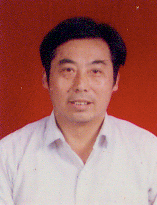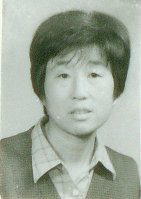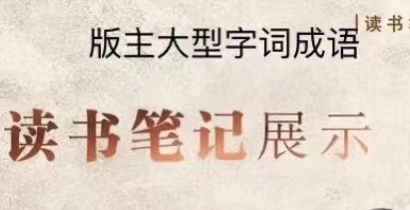Time flied and days and months went by as quickly as a shuttle. It was eight years since I began to work at the ZMS. In the autumn of 1988, Li Song began to read in Senior Grade Two and Liangliang Song Junior Grade Two, and we came to the age of 43. Those teachers who were somewhat older than us and whose children graduated from the ZMS had left Zhengji or were trying to transfer their work. Transferring one’s work according to their own will was not an easy job, had to go through several checkpoints and could not succeed without a high official’s help. Therefore, there were some teachers who had spent years working hard and came to a failure in the end. Since the graduation from Nanjing University we were shifted by the administration authority from one school to another, without any of our own interference or will. Now we would go to where we wanted to work ourselves and we wondered how we can manage to do it. The teachers who were successful in shifting their work places told us about their experience, “transferring will cost half of your life”, “What is called ‘跑调动’and‘闹调动’,i.e. you have to run a long way and even you have to sulk. Otherwise you could not realize your wish.” We had a strong intention not to continue to still work here until we retired, and we needed a new environment and a new power in our life. Furthermore, our first son would enter a college or a university in another city and in the future, he would work perhaps in another city. It would be inconvenient for him to come to Zhengji. Our age was still fairly welcome, but years later, we would reach 50 and no unit had interest in us. We decided to act immediately without too much considering the result. A step forward and then decide what to do, groping our way and advancing. If necessary, we would ask somebody to help. We would control our emotions, tried hard not to quarrel with the leader and make the transfer to the city a normal one.
In the spring of the year, we submitted a written request to No.1 leader of the school and paid a visit to Baotian Li, the principal, illustrating our demand and idea. Li indicated his understanding of our requirement and said that he had the idea to use (promote) me but found it not convenient. (In fact I didn’t follow the leader’s instruction to the full degree and was afraid of being employed at a higher level.) He continued saying, “Since you have the idea of transferring, we would consider it seriously.” The response of the principal was better than I had thought, encouraging my confidence.
Learning that the school sighed on our written report and got ready to let us go, I wrote a long letter to the head of the education bureau, called Xiangyuan Yao, expressing the reason of our transfer. Yao used to work in the Northeast after graduation from Jilin University, later was transferred to Tongshan, his home county and then made rapid advance in his career. Knowing his experience, I told him that I wanted to go back to my hometown and asked him to understand my mood.
During the summer vacation we began to “run” to find leaders. First we went to the personnel division of the bureau, asking whether it received our written report or not and expressing the reason of our transfer to the head’s face. Then we found the vice director of the bureau who was in charge of personnel in order to let him know our demand. It was summer and at noon we had a rest on the long chair of wood in the office. In the afternoon at three o’clock, all the leaders of the bureau were present and got ready to have a meeting. We made use of the chance, explaining our transfer reason. Yao said, “Lao Song, I’ve received your letter. Wait for the news of our discussion.” We returned to Zhengji and waited until one day the news came that Meilan Zhang was allowed to leave Tongshan next year.
Mailan Zhang’s transfer material reached the personnel division of the city education bureau, whose head used to be our alumna. He was called Yunzhang Dai and also graduated from the foreign language department of Nanjing University, majoring in Spanish, not strange to us. However, his attitude was not satisfying at all. He said that the city itself didn’t need English teachers recently because a lot of middle schools had changed into vocational senior middle schools, in which English was not so important as that in academic ones. We asked whether Meilan Zhang’s transfer material could go to the personnel division of the city government, where we could try to find a secondary technical school. Dai didn’t show due respect for our feeling and said the total number of English teachers was not adequate, especially in the counties. If the city education bureau could not arrange, he would send Zhang’s material back to Tongshan County. We were aware that the key of whether Meilan could be successful in transferring lay in here. We decided to return to our home and think a way to solve the issue.
We had to ask somebody to help us, whose level must be higher than Dai, otherwise we could not go ahead any longer. We thought of a person, who could help us. I should tell the story about how I got to know him.
In 1981, the personnel bureau of Jiangsu Province recruited foreign language personnel. At that time there was Xuzhou District Administration, where I went to enter my name. The two officials in the charge said that middle school teachers were not allowed to take the selective examination and I was asked to get the allowance from the county education bureau. I did a lot of talking with them, and asked to take the German examination first. If I was enrolled I would apply for the approval of the education bureau. The two officials were somewhat flexible and let me enter my name. The examination was held by the Xuzhou City and Xuzhou District together and I had the chance to get to know the director of the personnel division of Xuzhou City, whose name was Jing Wu. By communicating with each other, I got to know that he also came from Nantong. His county was Haimen next to Tongzhou and hometown Tong’le. He graduated from Haimen Middle School and entered Zhenjiang Institute of Agricultural Machinery (renamed as Jiangsu University in 2001). The fellow-townsmanship narrowed the gap between us.
Several days after the examination Jing Wu went to Nanjing to copy our scores. When I was taking physical examination before being employed he told me that my German score was the second place in the whole province and asked me to stay in Xuzhou instead of go to the south. He said that he would try to arrange for me to get a position in the foreign affairs office of the city government, exempted from the oral examination. He invited me to go to his home for lunch and I got to know his family. Wu’s wife, called Lingling Hu, used to be his classmate in Zhenjiang. Wu could speak Haimen and Nantong dialect as well because his mother was from Eryao Town of Nantong County. Mother Wu was present and we could talk in our county dialect. Wu asked for instructions of the Party organization leader of the city committee to let me enter into the foreign affairs office. But the last checkpoint was at the secretary of the Party City Committee, who said that nobody could enter the foreign affairs office right now. This was because a lot of people wanted to work in the office who had power and influence.
Later Wu arranged for me to work in the Rare Metal Research Institute of the State General Bureau of Goods and Materials, sending the employment notice to the personnel division of the education bureau of Tongshan, which did not inform me at all. I began to look into the Rare Metal Research Institute and got to know that it used to be a factory run by No.6 Middle School, which was later independent and attached to the grand signboard, the State General Bureau of Goods and Materials. If I worked there, I would have translated materials in German for the scientific research personnel, which caused me to remember the German translator in a Nanjing Research Institute, who poured out his grievances in front of us. Seeing that so many students from the ZMS had entered colleges or universities, we wanted to nurture our kids and make them become college students here, so we gave up finding the head of the education bureau and putting forward our request to work in the city.
After getting to know Jing Wu we had touch with each other occasionally, sometimes I came upon him in the street without making an appointment. For example, in 1986, I came upon him in front of the gate of the city government. He told me that he had just studied in the Central Party School and now held the position of the first vice leader of the Party Organization Department of the City Committee. Before long, the news media reported that he took charge of the Party Organization Department of the city, i.e. he was promoted to No. 1 head. Later Wu and his wife came to my home as guests, talking about their daughter, who would enter the senior middle school. Now we had difficulty in transferring and had to ask him for help, believing that he would do his best. One morning, when he just entered his office, we got there and made clear what we came for. Wu received us very warmly and called his successor to come to his office, the recent director of the personnel division of Xuzhou City, whose surname was Wan. Wu introduced us to Wan and asked Wan to find a unit for Meilan Zhang. Wan promised by nodding. The next step was to ask the personnel division of the city education bureau to let Zhang’s transfer material go to the personnel division of the city government. We thought that Yunzhang Dai, the director of the personnel division of the educational bureau could not help us and had to trouble Wu again, asking him to telephone the Party secretary of the city education bureau, Wang, so that Zhang’s material could go to the personnel division of the city. Wu told us that he had called Secretary Wang and we could go to see him. Recommended by the director of the secondary education division, Yang and his wife Gui, Meilan Zhang went to see Secretary Wang. (the Yangs used to work in the ZMS and we had good relationship) Under Wang’s interference, Dai had to let Meilan Zhang’s material go to the personnel division of the city.
Finishing this step, we eased up somewhat, but in fact there was a very long way to go before success. Wan found a secondary medical school located in the south suburb and before long told us that Secretary Ma of the school did not agree. Wan asked us to find someone to persuade Ma.
Where could we find somebody who knew Ma? By inquiring, we knew that Ma used to work in the City Medical Corporation, which made us think of Jian Wang, who was a graduate from Mapo Middle School in 1975. Jian Wang was a good student, could play erhu(a Chinese instrument) , and pleased leaders and teachers, so that he worked in Mapo Middle School as soon as he graduated. When the college entrance examination was resumed he took the examination and entered Nanjing Institute of Chemical Engineering. He came back after the graduation and worked in a medical factory subordinated to the chemical and medical bureau. Now he was working in the bureau and it was possible for him to know Ma. Jian Wang had worked only for five to six years, but we had no choice but to find him to help us. I asked Jian Wang whether he knew Ma or not, who answered that they belonged to one bureau and lived in the same building, which made us very happy.
One day, when we got to the city, it was already late afternoon. We wanted to ask Jian Wang to persuade Ma to accept and employ Meilan. At that time, we had no home telephone, let alone mobile one. Without making an appointment, we tried to find Wang’s home. Some time ago Meilan sat in Wang’s car and visited his home and she could not remember where his building was. It was very hard for us to find his home, because she only knew the main road near Wang’s building and did not know the lane and court. She even did not remember on which side of the main road Wang’s home building stood. We inquired and inquired and it took us about an hour to find that Wang’s home was in the other side of the main road. Finally, we found Wang, whose wife used to study also in the Mapo Middle school and got busy to prepare some noodle for our supper. We were tired out both physically and mentally. How tough it was for us to do something at the time when the communication was not developed!
Getting to know our purpose, Jian Wang was naturally willing to do his best. We had supper his wife Zhao had prepared for us and Wang went upward to see Ma. We talked with Zhao for a very long time and Wang did not come down, which indicated the hard work Wang was doing. Wang finally came home and told us, that Ma had complained a lot about what had been done to him by the Party City Committee. Ma used to be No 1 head of the Medicine Corporation. The internal conflict broke out in the leading team of the corporation, so the City Party Committee did away with all the members of the team and Ma was sent to this medicine technical school. Wang said that Ma was not willing to work in an institution, which could not give full play to his talent. He learned that Meilan Zhang was recommended by the City Party Organization Department (perhaps Wan told him), he made up his mind to refuse her. Although Jian Wang did his best, he did not avoid being refused.
I told the difficulty to Director Wan, who promised to seek another school. We waited and waited and asked him once in a while, using the public phone of the ZMS. In the spring of 1989, Wan told us that he had got touch with the Cadre Institute of Economic Management, which was in charge of adult education and was located in the west suburb, called Dinglou Orchard. To get there, you first came to Duanzhuang, the utmost west of the city at that time, took No 8 bus, got off at the fork to Xiaoxian County, Anhui province, and went on foot for ten minutes or more. We went there to see the leader of the personnel division and then managed to see Secretary You at his home. The institute arranged for Zhang to have a test lecture. In order to ensure the success of the test lecture, we prepared a teaching plan, rehearsed at home and revised it, consulting with each other. On the day of the test lecture, vice principal in charge of teaching, sector of teaching affairs and all the English teachers were in the class, who set a good value on Zhang’s lecture, which lay a sound foundation for her to become an English teacher in this adult institute. Later the transfer work developed somewhat smoothly and in September of 1989, Meilan Zhang began to teach in the Institute. Zhang moved the registered residence place of herself and two children from Tongshan to the city in her spare time so that Li Song, our first son could take the college entrance examination in Xuzhou city and Liangliang Song, our second son, visit the senior grade inside the city. The residence booklet of them three indicated the final success of Zhang’s transfer.
My transfer work started in September of 1989. Familiar with the route, we could manage it with ease. I saw the green light not only in the county education bureau, the county personnel bureau, but also in the city education bureau. Director Wan continued to find a unit for me, saying that the city wanted to use the technology from Austria to build a factory treating the polluted water, which needed a German interpreter. But later Wan asked me to go to Pengda (Pengcheng Vocation University, later renamed as Xuzhou Institute of Engineering), which needed an English teacher. He said that once the factory was completed, the interpreter would be moved to another unit. You didn’t know what you could do. Wan believed that I didn’t like that.
I followed his advice to go to the personnel division of Pengda. Since Meilan Zhang began teaching in the Institute of Economic Management, she was allowed not to keep office hours. Once she ended her class, she can come home, which I admired very much. If I could teach in Pengda I could also come home to do what I liked after the class was over. So I made up my mind to go to Pengda. After the test lecture I delayed my step for transfer and waited for the result of Liangliang Song’s entrance examination to see whether he could be enrolled by Xuzhou No. 1 Middle School. If he could not, I would go to No. 3 Middle School, bringing Liangliang Song with me so that he could study in the senior grades there, because the principal there promised me first to teach there and then go through formalities.
It was not long before we got the result of Liangliang Song’s entrance examination, which was very ideal. There existed no problem for him to be enrolled into the No. 1 Middle School, so I speeded up my procedure to Pengda. During the summer vacation of 1990, I finished the route to Pengda, Li Song was enrolled to Southeast University in Nanjing and Liangliang Song received the admission notice from the No 1 Middle School. All was smooth and satisfactory and my family entered a new stage.
|
|
At age of 45 beginning to work in the city
Jan. 27 2010 in Xuzhou
Proofreading on Feb. 20 2012 in Chicago
Uploading on Aug. 5, 2023 in Xuzhou











